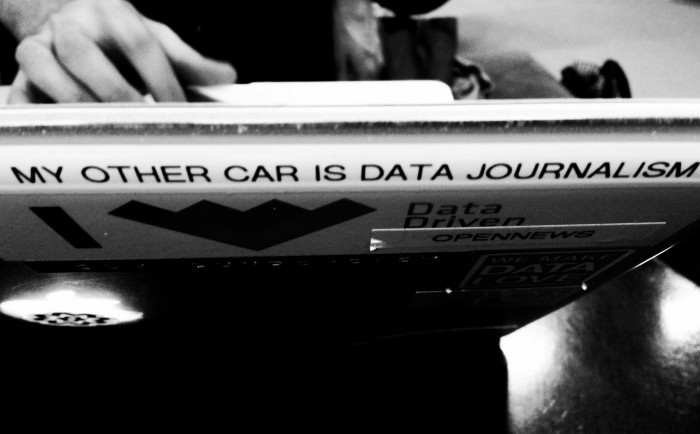
News organizations these days are spending a lot of time and energy making sure that data plays a central role in their newsrooms. But fewer are putting as much effort into building that kind of data culture into their organizations overall.
That argument is core to the Data Culture Project, a new effort designed to help nonprofit organizations expand data literacy to more of their staff and leadership. While the program isn’t designed exclusively for journalism nonprofits, its creators are interested in seeing how, for example, data-literate reporters and editors can extend those skills to less technical people in other departments. The program’s activities, which focus on topics such as data storytelling, spreadsheet analysis, and test mining, are designed to be accessible, and assume no prior knowledge of how to work with data.
“When we’re talking data culture in a journalism organization, we’re not just talking about data journalism,” said Catherine D’Ignazio, assistant professor of civic media and data visualization at Emerson College. “We’re talking about shifting the culture of the whole operation, including the people at the top, to understand how data can provide insight into all parts of an organization.” D’Ignazio is developing the project alongside Rahul Bhargava, a research scientist at MIT Center for Civic Media.
To help develop the program further, the team is looking for roughly a dozen organizations to volunteer to participate in a three-month pilot of the program, which will involve three brown-bag lunch sessions in which organizations will work through some key ideas and activities. (Organizations interested in participating in a pilot program can apply here.)
Organizations that have a “data culture,” as D’Ignazio and Bhargava define it, are typically those whose leadership understands the importance of data and prioritizes its collection and management. More, these leaders also prioritize the idea that people in all parts of an organization — not just a few techies — are data literate. These staffers are trained and encourage to find uses for data, particularly when it comes to solving big problems within their organizations. (D’Ignazio and Bhargava also developed Databasic.io, a suite of tools designed to introduce users to basic data concepts.)
The Data Culture Project was developed with the understanding that organizations face plenty of barriers to making data literacy more core to their organizations. One of the most common of these barriers is that, for the leadership at many organizations, data is seen as something solely in the purview of IT departments. And in other organizations, data is controlled by evaluation departments, which must collect data because of funding stipulations.
The problem, argues D’Ignazio, is that when data literacy is limited to small numbers of people within an organization, the rest of the organization misses out. “There are a lot of folks in nonprofit organizations who are evaluation specialists and end up being the data people — but then the rest of the people in the organization don’t necessarily know what that group is doing,” D’Ignazio said. “We think there’s a lot more useful organizational knowledge and theres a lot of under-leveraged creativity with people who are not super skilled with data, but have deep domain knowledge with the areas they’re working in.”
Another problem occurs when organizations collect lots of data, but can’t figure out what to do with it. There’s the “boringness” barrier, which can be significant. These problems are real ones, but also ones that can be fixed as people outside technical circles learn to better use data within their own domains. While these people have a stake in how data is used at their organizations, they rarely have a seat at the table. “There’s often this bridging factor that is lacking,” said D’Ignazio. “If we want to make the case that data is good for democracy, it can’t only be good for democracy for IT people and tech people. It’s something all of us should be able to use and have access to as a common resource or common language.”